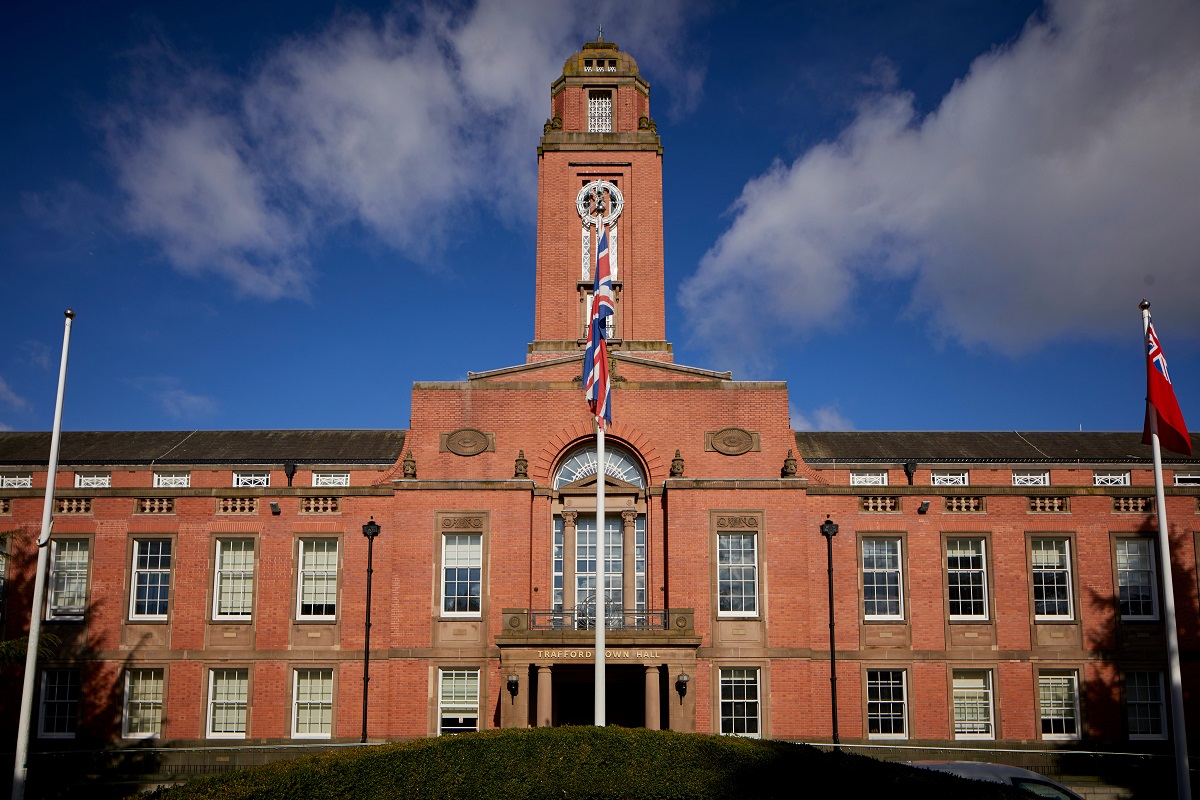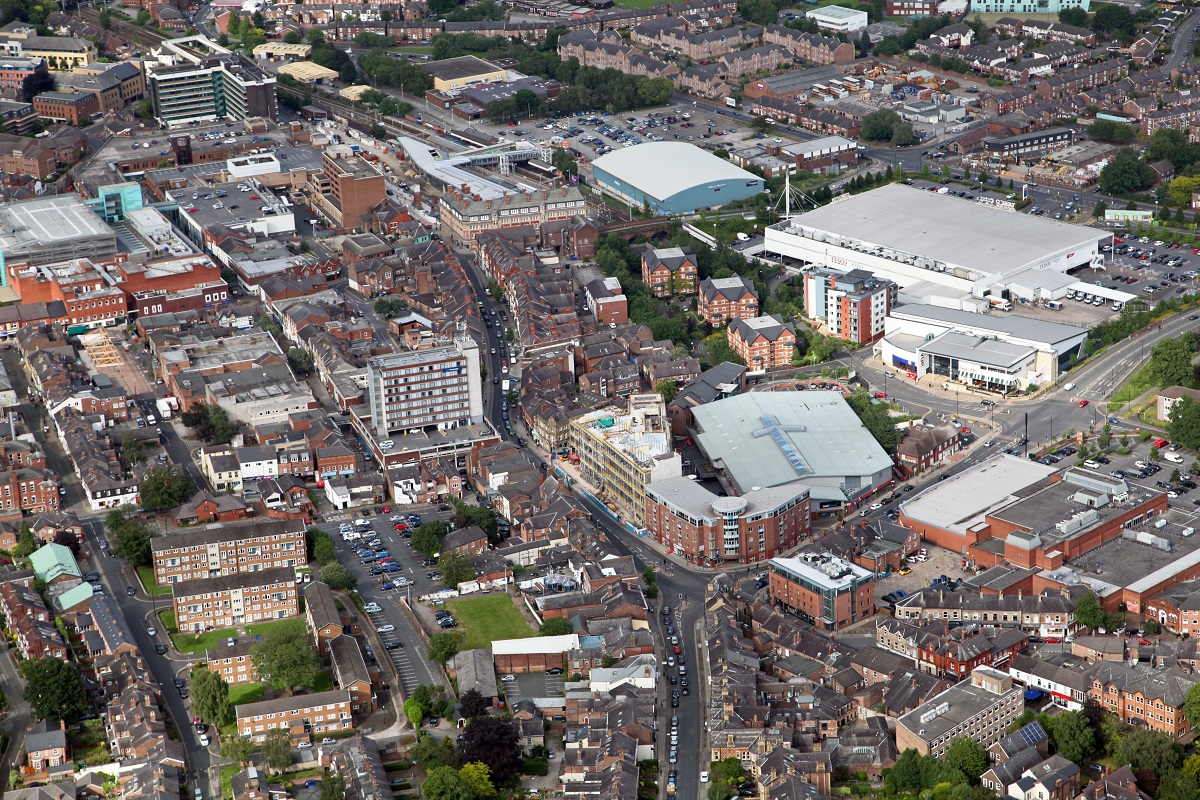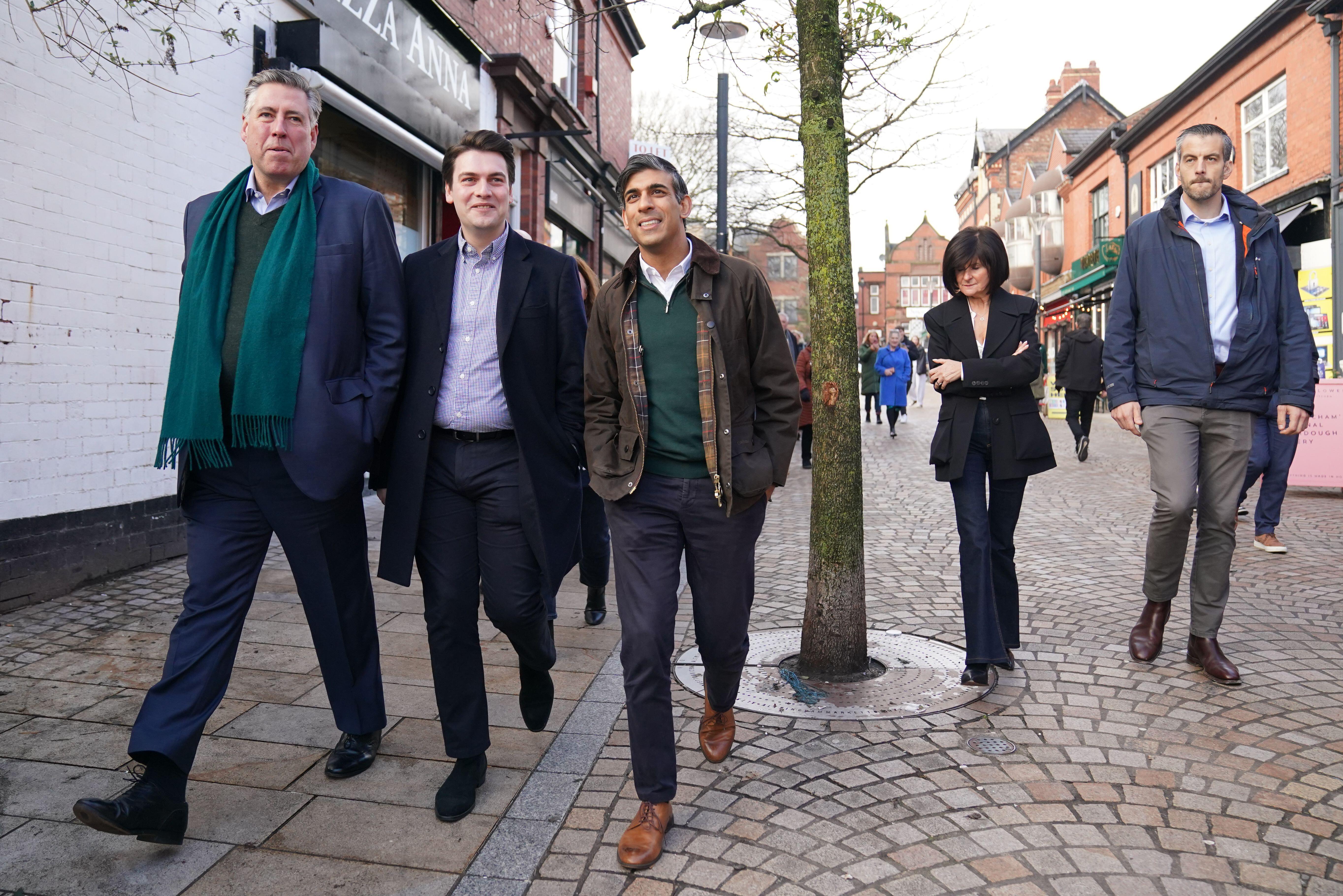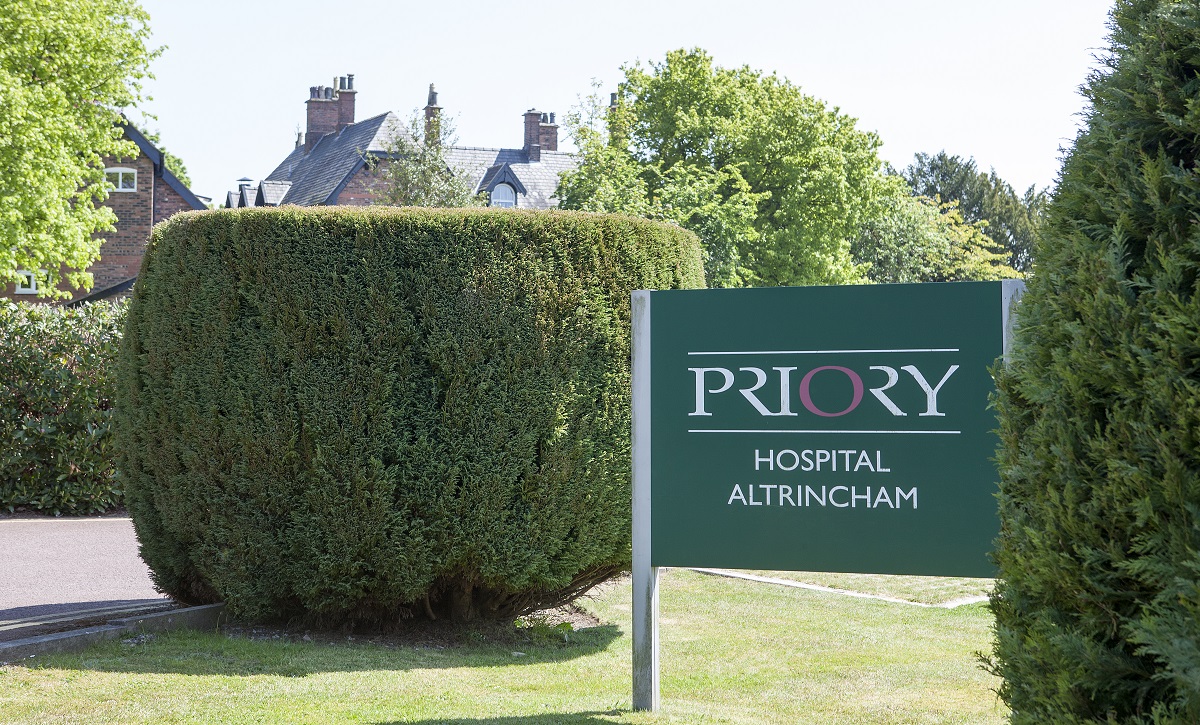Craft beer and personal freedom – why Hong Kong nationals settled in Altrincham and Sale
A wave of trendy bars, cafes and restaurants serving authentic Hong Kong street food, craft beer and bubble tea are a welcome addition to cultural life in Altrincham and Sale. But the story behind the diversification of the towns is one of persecution, fear and personal struggle for the Hongkongers who have settled here in large numbers.
In naming the pub the Harcourt, Priscilla So has neatly summed up the mix of politics and ambition that has brought so many Hongkongers to Altrincham and Sale in the last three years.
Harcourt Road in Hong Kong was the centre of 2014’s Umbrella Movement, when protesters demanded more transparent elections after Beijing demanded to screen candidates.
Then a journalism and corporate communications student, So was among the protesters for whom police tear gas signalled Hong Kong was no longer safe.
When she, her husband Brian Hung and another Hong Kong couple opened their bar in Altrincham town centre last year, the choice of name was a pointed statement about the loss of democracy in their homeland, which accelerated following further protests and a crackdown in 2019-2020.
But the Harcourt – named after Cecil Harcourt, a British administrator of Hong Kong – is also a shrewdly reassuring choice of name for the entrepreneurs’ bar, which combines craft beer and authentic Hong Kong street food. It just sounds like a British boozer.
A safe route
In response to the 2019-20 crackdown and harsh new national security laws, the British government set up the British National (Overseas) immigration route, offering 2.9 million residents of its former colony and their dependant family members a five-year visa for the UK.
One of only three safe routes for migrants to the UK – the others being from Afghanistan and Ukraine – the BN(O) visa was described by then prime minister Boris Johnson as honouring “our profound ties of history and friendship with the people of Hong Kong, and we have stood up for freedom and autonomy”.
According to the Home Office, 184,700 visas had been granted up to September 2023, with 135,400 arrivals in the UK. There’s an unusually high concentration of Hongkongers in Altrincham and Sale.
“Me and my friends, we were there in the movement. We witnessed what happened,” says So, who later worked in Hong Kong’s embryonic craft beer industry.
“Hong Kong was a place where before 2014 we had freedom of speech. We could do whatever we wanted. Protest was a normal thing. We didn’t have any restrictions.”
But then came the tear gas and a realisation that “maybe HK was not as safe as I thought”.
Feeling an obligation to look after her family, who wanted to stay in Hong Kong, So was reluctant to voice her desire to leave. But mother knows best.
“One day during the social movement my mother said I think you should move abroad as soon as possible because there’s no freedom in Hong Kong. If you stay you will suffer.”
It was a painful wrench to leave. But her husband, also in the beer industry, had secured a job with Manchester’s renowned Cloudwater brewery and they struck up a friendship with another couple, Fiona Chan and Kyle Wong, going on to open the Harcourt on Stamford New Road in January last year.
She says she’s had a “warm welcome” in Altrincham and likes its “chilled, laid-back” feel. Integration is important to her. Once they’ve got over occasional initial doubts that a twenty-something Asian woman can be a beer expert, and realise the food isn’t standard takeaway fare, customers acknowledge the Harcourt’s “cultural impact”, says So.
“Food and drink are a channel to do a cultural exchange and I’m glad we can do something like this.”

Trafford Town Hall in Stretford
By March 2022, just over a year into the BN(O) scheme, Trafford Council estimated 800 people had settled in the area from Hong Kong, and the number is likely to be around 4,000 now, according to Wing-sun Chan, one of the directors of Trafford Hongkongers CIC. Trafford’s grammar schools are the key attraction for families.
Shirley* was an English teacher in Hong Kong, living with her husband and seven-year-old son. As both an education professional and a parent she could see the harm Beijing was doing to Hong Kong’s school system. The new national security laws compelled teachers to warn pupils not to commit “subversion” or submit to “foreign interference”. There was censorship of learning materials after authorities claimed schools were hotbeds for the 2019 protests.
“I was worried about the political situation in Hong Kong and decided my son would be better to have an education in the UK to have freedom of speech, equality and liberty,” said Shirley. “The earlier he comes here, the earlier he will be able to integrate into the local community.
“I was not very active protesting but we used to set our own writing topics like a letter to the editor. I’m not always careful with my words so was a bit worried – it was better for us to leave.”
She was concerned, paradoxically, that UK schools would be too lax – that there would be bullying and a lack of discipline. With the help of the Ofsted website and other Hongkongers, she chose Trafford.
“Everyone will give you the same answer – it’s because of the catchment of the schools,” says Shirley. “We Hongkongers really put much emphasis on education. Even back in Hong Kong everyone’s fighting to go into the prestigious schools.
"But we prize good behaviour and still want children to have respect for old people and family.”
Although the BN(O) route is open to a large number of people – seemingly flying in the face of prevailing anti-immigration policy – it places conditions on would-be applicants. They must pay a fee for the visa, be able to show they have the money to survive for six months, pay a surcharge for use of the NHS and have no recourse to public funds, such as welfare benefits.
They don’t need to have been offered a job in order to come to the UK – but there is limited and slow recognition of their professional qualifications. Students pay overseas university fees, not the home fees that people fleeing Ukraine would pay.
Shirley’s story shows how this has created a particular wave of migration. The Hongkongers may not have faced the overt threat to life that other migrants have sought to escape. They may not face the destitution that some in the UK do. But it’s not plain sailing.
The sale of Shirley’s flat in Hong Kong, which until recently had soaring property values, funded not only the purchase of a main house in the UK but also two rental properties. But her husband’s poor English means he can’t work, and it took over a year for Shirley to convert her qualifications through ENIC, the UK agency for international skills, meaning she could only work as a teaching assistant at first. The cost of living is higher in the UK as well.
All told, the rental income has been a necessity, not a luxury, for her family. It’s a less rosy picture for those relying on the country’s high-priced rental market.
Trafford Council has made considerable efforts to support its new arrivals, working outside the BN(O) scheme’s overall restrictions on recourse to public funds.
It’s commissioned five English for Speakers of Other Languages trainers for them, and trained 535 Hong Kong people. Weekly job clubs in seven locations help with CVs, job searches and applications. There’s a bespoke training programme for those wanting to work in social care and business start-up support.
The council has also supported Trafford Hongkongers CIC with applications for grant funding and promoting events and opportunities. One of the Community Interest Company’s directors, Wing-sun Chan, says it’s put in 30 grant applications in over two-and-a-half years as it seeks to promote employment and education opportunities for recent arrivals, organise cultural activities and provide advocacy services.
Chan worked in the social care sector in Hong Kong before coming to Sale in May 2021. He now works full time as research lead for Hongkongers in Britain and volunteers at Trafford Hongkongers, which has organised employment support for more than 400 people, run play and game initiatives to help Hong Kong children integrate into local schools, taught parents how to support their children through school, and run sui mai cookery classes for migrants so they can make the delicate pastry parcels they miss so much from Hong Kong.
Chan acknowledges the council’s efforts but believes more can be done to help the Hongkongers. There’s been some funding through the North West Regional Strategic Migration Partnership to subsidise people wanting to work in adult education and teaching English as a second language.
“That is an investment,” says Chan. “The Honkgongers really have the practised knowledge to teach other Hongkongers because we know their weaknesses.
"That sort of investment would be good for the council if we wanted to develop the human resources of the Hongkongers. I’ve said that if we don’t develop them, they might be a burden.”
“Significant barriers”
Michaela Benson, a Lancaster University sociologist, agrees that Hongkongers renting and needing to find work struggle more than those who can sell a Hong Kong property.
“They face significant barriers,” she says, adding that there may be people who can make a good claim to leave Hong Kong on humanitarian grounds but cannot afford to do so. Other researchers are looking into this.
Benson is co-author of a report comparing the experiences of migrants moving from Hong Kong and Ukraine on humanitarian grounds to the UK. It found that applications for the BN(O) visa were generally straightforward, and were experienced as offering protection, but Hongkongers “did not feel sufficiently supported to settle in the UK”. They reported “prolonged unemployment and downward occupational mobility”, and particular challenges related to the recognition of their educational qualifications and difficulties in obtaining the Certificate of No Criminal Conviction.

Altrincham town centre from above
Benson also questions the government’s assertion that the BN(O) scheme is a generous one.
“There were 2.8 million people in 1997 who had gone from being British citizens to not having the right of abode,” she says. “And from the point of handover they didn’t have a say in their future at all. They were never given a right to self-determination. So I’m always quite critical of that approach that says that’s generous.”
She adds that Hongkongers are having to pay for humanitarian visas in a way that others such as Ukrainians are not.
“The sense of paying for protection is really problematic. It’s creating a stratification within that system of humanitarian routes.
“I don’t think it’s right that we have judged a particular population is in need of humanitarian protection, we have then introduced a fee for it when we don’t charge other people.”
The humanitarian angle becomes sharper because of yet further restrictions on human rights in Hong Kong. A new national security law enacted in March permits life imprisonment for offences including treason and insurrection. Police who were limited to detaining people without charge for 48 hours can now do so for 16 days.
Hong Kong Leader John Lee said the law, known as Article 23, was a “historic moment” in safeguarding national security but the UK updated its travel advice to warn of the dangers of breaching it, and foreign secretary David Cameron said it would “further damage the rights and freedoms” of Hong Kong people.
Shirley says Hong Kong teachers now have to embed patriotism in their lessons and need to know about national security laws. She says there is a growing use of simplified rather than traditional Chinese characters in books and TV subtitles – simplified characters being the mainland Chinese way of writing. Importing labour from mainland China for manual jobs is seen by critics as a way of marginalising the original population, similar to the way Beijing acted in Tibet.
“A tighter grip”
And on 30 May, a Hong Kong court found 14 pro-democracy activists guilty of subversion for organising what was called an unofficial election in 2021, prompting international condemnation.
“The Chinese government is getting an even tighter grip on Hong Kong,” says Shirley who, like So, has no plans to return. Even a visit presents problems because of a fear their passports would be confiscated and they wouldn’t be able to get back to the UK.
Benson says interviewees in her survey mentioned a concern for their security even though they weren’t asked directly about it. Some fear surveillance by the Chinese or Hong Kong authorities.
They’ll have read about the violence of Chinese consulate staff in Manchester against protesters, prompting a police investigation. Recent charges against three men accused at Westminster Magistrates’ Court of assisting the Hong Kong intelligence service have only heightened those concerns.
Chan says a perceived threat is actually an existing one, and has deterred Hongkongers in the UK from taking part in collective action or assembly for fears that their presence will be monitored either live or from social media. Part of the role of the Trafford Hongkongers CIC is to uphold those rights of participation, he says.
Meanwhile, in Altrincham town centre, Anson Fong is getting on with building a new business – and new bridges. His down-to-earth Memories cafe, on the site of a former chippy on Cross St, may be a far cry from Hong Kong’s glamorous SoHo district, where he consulted on the openings of an Armani bar and high-end nightclubs and restaurants, but he has a few surprises up his sleeve.
Fong arrived in Altrincham two years ago, with his wife and two sons, now aged 15 and seven. He had grown up in Australia, working as a bartender while studying and running a restaurant for a friend before returning to to Hong Kong, where he felt his sons would come under undue pressure.
“As I grew up in Australia I knew it was time to give the kids the chance to see a bigger world, to let them see a different culture. That’s really useful because in Hong Kong everyone’s focusing on their school marks.”
There, it’s school during the day, then after-school studies, often finishing at 10am. “They don’t have any time to breathe. They are pretty tired. I feel sad for them because it’s totally different from my experience.”
Internet searches led him to Reading, Nottingham and other places before he settled on Manchester, its size offering him the food and drink business opportunities he was looking for. Then Altrincham.
“The school network is most important. The second is safety. I’ve been living in Altrincham for two years now. I love it. The people are very nice.”
Five months ago he opened Memories, where you can get a £3.50 bacon butty in the morning, Korean specials throughout the day, and molecular cocktails at night. Infectiously enthusiastic about hospitality, he seems able to combine affordability – a portion of fried chicken at just over a fiver – with quality and creativity in a way few places can.
He’s imported a machine from Japan that lets him print any photo onto a latte using edible colourings, but he gets construction workers in for lunch. He only uses tea leaves in his bubble tea – no granules. He cooks everything himself, often doing 18-hour days, and is “recharged by a positive comment from a customer”. He’ll hold down prices if he can.
“I want people to enjoy good food at a decent price. Why not make people happy if you can?”
*name has been changed
Sign up to The Altrincham & Sale Lead for free for more of our news, features, recommendations and investigations.
You can see the previous newsletter we sent to our subscribers.
The Lead is now on Substack.
Become a Member, and get our most groundbreaking content first. Become a Founder, and join the newsroom’s internal conversation - meet the writers, the editors and more.





